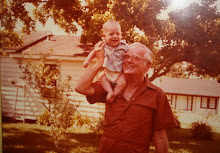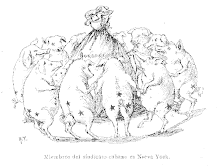Living on this peaceful mountain it’s easy to get lost in it all. I’m surrounded by the fresh smell of spring each morning. I wake up to the crisp, chill breeze hitting me in the face as it sweeps across Appalachia and out to the Atlantic. I amuse myself by watching the squirrels dance from tree to tree, the birds flutter from branch to branch, the bees buzz from flower to flower, the deer stroll up to the road at dusk, the springs trickle gently down the hills, and, when the wind whistles through the mountains, I watch the tops of the trees sway romantically from left to right in dazzling Technicolored, hyper-realism.
Yet, amongst all this dreamy “Bird on my Shoulder,” Song of the South bullshit, it’s easy to forget that this place was once the base for a large Confederate partisan group. Col. John S. Mosby, the “Grey Ghost,” controlled this area from 1863 until the end of the Civil War. He and the 43rd Battalion, 1st Virginia Cavalry were camped up in these hills, making raids on Union forces nearby, blending into the local farming population, and, in general, just waiting to march triumphantly into Washington, D.C.
As everyone knows full well—save for maybe the current Gov. of Virginia—there was no triumphal march; there was no victorious South. For the most part, things didn’t go at all the way the “Grey Ghost” would have hoped; and he lived long enough to see it.
I confess, however, that I don’t know exactly how his soldiers met their end. I imagine that many of them did what they had been doing throughout the war; they blended into the population, worked the land, and let the bitterness of defeat eat at their souls for years. I’d like to think that not all of them went this way. I think many of them slept and bleed on this earth. Some of them, I’m sure, died up in these hills. And, quite a number of them surely buried their friends, brothers, and fellow soldiers under these rocks and trees.
I confess, however, that I don’t know exactly how his soldiers met their end. I imagine that many of them did what they had been doing throughout the war; they blended into the population, worked the land, and let the bitterness of defeat eat at their souls for years. I’d like to think that not all of them went this way. I think many of them slept and bleed on this earth. Some of them, I’m sure, died up in these hills. And, quite a number of them surely buried their friends, brothers, and fellow soldiers under these rocks and trees.
So, essentially, I’m living in a confederate graveyard! As I hike the AT each morning (which by the way skirts the Eastern Front of Mosby’s Confederacy), I’m always on the lookout for some remnant of this place’s violent past—some name or bit of misspelled vulgarity chiseled in a rock, some chunk of lead buried in the trunk of a tree, some old, half-buried skeletal hand still clinging to the slaves it never owned and a vision of the South that’s so romanticized and so idealized that it scarcely ever existed in the first place.












No comments:
Post a Comment